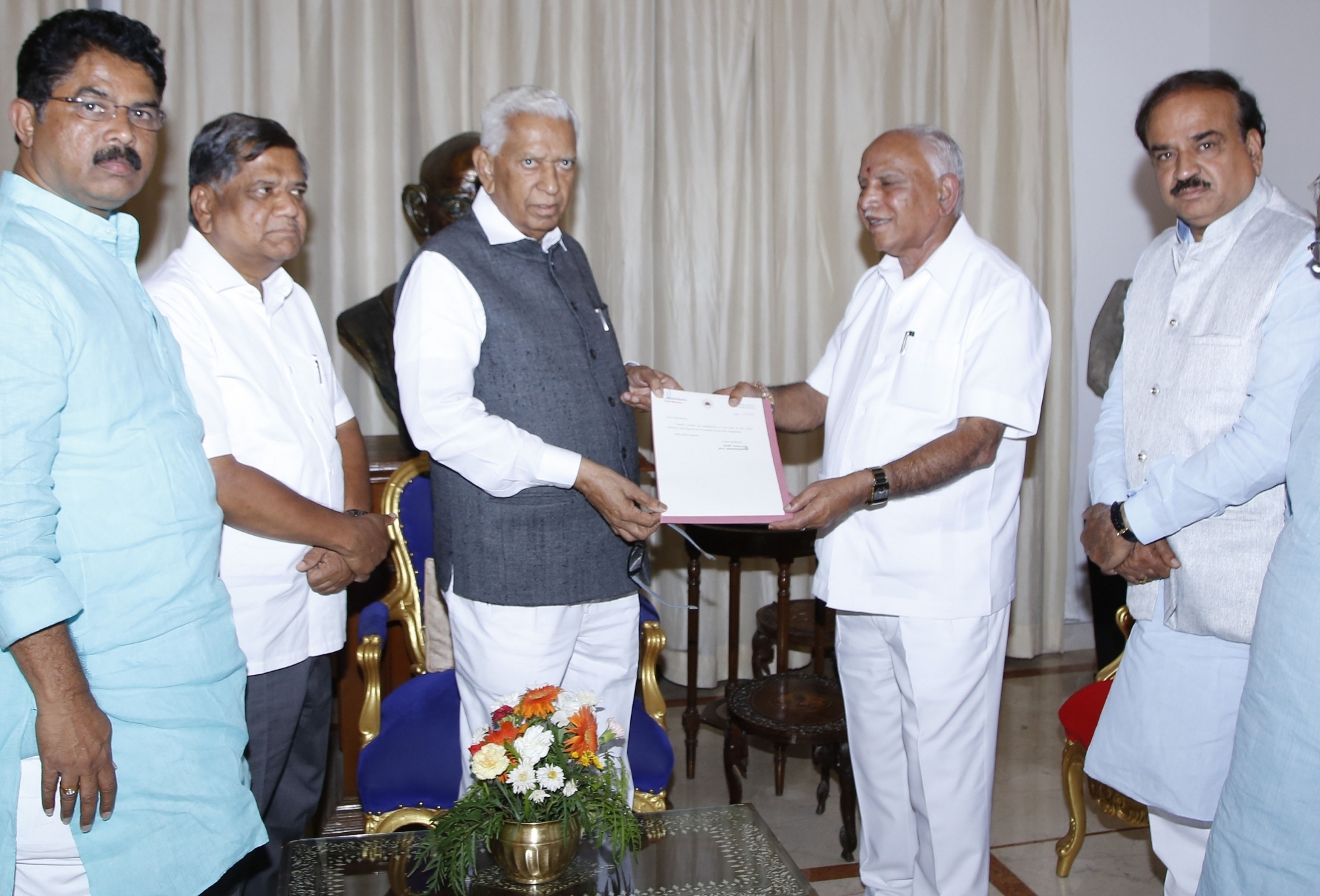In a major setback to the Bharatiya Janata Party’s foray into the South, B.S. Yeddyurappa took everyone by surprise by tendering his resignation as the Karnataka Chief Minister shortly before a floor test was scheduled to take place so as to determine his majority in the Assembly. It was evident that the third time CM was left in the lurch by senior functionaries of his party and was unable to muster the numbers needed to win a confidence vote, given that his party had secured 104 seats following the elections, eight short of the halfway mark.
Yeddyurappa’s resignation has ensured that the Governor Vajubhai Vala would now have no other option but to invite H.D. Kumaraswamy to form government. Kumaraswamy has the support of 37 Janata Dal(S) members, 78 Congress MLAs besides two Independents and, therefore, should have been routinely asked to take over from Siddaramaiah in the first place, but for the Governor using his discretionary powers while providing an opportunity to Yeddyurappa to form the government.
It was abundantly clear that Yeddyurappa would be unable to hold on to the position after the Supreme Court in a landmark judgement on Thursday morning overruled the Governor by reducing the time frame for seeking the confidence vote from 15 days to simply 24 hours
In fact, when Prime Minister Narendra Modi and party chief Amit Shah skipped Yeddyurappa’s swearing in ceremony on 17 May, a clear signal was sent out that even though he may have been projected as the CM nominee, yet he certainly was not amongst their favourites, and their priority lay on consolidating the BJP’s position for the 2019 parliamentary polls. In their scheme of things, Yeddyurappa’s sacrifice would generate a sympathy wave in the party’s favour and this could be encashed when the Lok Sabha elections are held next year.
Senior political leaders across party lines were taken aback why in the first place the BJP with numbers short of a simple majority had opted to initially form government. Strategically it would have been more prudent had the JDS and Congress formed the government, and the BJP, by manipulating some of their MLAs to abstain during the confidence vote, could have then rightly and legitimately staked its claim subsequently.
If this did not happen, it was because several central observers sent by the BJP were outwitted by the quick response of the Congress high command in declaring the party’s support to Kumaraswamy. Instead of thinking the matter through, BJP observers got into the race of wresting power, in the belief that the action would ensure that the Congress coffers for contesting polls elsewhere in the country would be deprived of money from the cash rich state of Karnataka.
On the part of the Congress, Ghulam Nabi Azad and Ashok Gehlot, both senior leaders, did not provide the BJP much room to manoeuvre and with active assistance from veterans like Mallikarjun Kharge and D.K. Shiv Kumar, monitored the situation round the clock. The Supreme Court intervention came at the appropriate time, taking the BJP camp off guard, leading to a panic reaction.
The Karnataka drama and how the manner in which it unfolded at various levels including the judiciary, exposed the inadequacies of the legal eagles in dealing with complex political situations which involved the processes related to the legislatures and their functioning. As an illustration, lawyers were unable to fully comprehend the importance of a pro-tem Speaker conducting the floor test, since under the Constitution his actions inside the House were exempt from judicial scrutiny even if they were arbitrary and controversial.
In fact the BJP chose not to utilise the services of K.G. Bopaiah, the pro-tem Speaker, who if the need arose, could have even suspended or ejected errant members of the opposition just ahead of the voting. However, Yeddyurappa saved him from the embarrassing task by honourably relinquishing his post.

